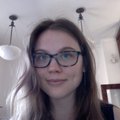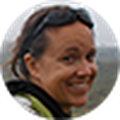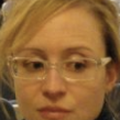Goal
Community Commons is a place to discuss topics and post documents and references relating broadly to medical humanities.
Members
-

Organizer/ Contact
-

Participant
-

Participant
-

Participant
-

Abigail Neely, PhD
Member
-

Member
-

Member
-

Member
-

Member
-

Mark Williams, PhD
Member
-

Neil Vickers, BA DEA MPhil DPhil
Member
- View all
Community Commons Project
Reply by John McGowan on Grant Wythoff: Hi everyone- I'm writing as the new ... | 1 Dec 2016
Grant: Our 2017 summer meeting will be held May 19th and 20th at the University of Miami in Florida. Could you please send out a "save the date" notice to the web site's members, as well as posting that information on the web site? Full program and registration information will be available by mid-February. Your note should also stress that this is not a closed group; we very much welcome new-comers to the meeting--and to the network. Thank you. John
Comment by John McGowan on Community Commons | 1 Dec 2016
A First Reaction to Atul Gawande's "Being Mortal"
I have just finished reading Atul Gawande’s Being Mortal. I have many things to say about the book—and hope this post will start off a conversation among ourselves of the issues the book raises. At the broadest level, Gawande’s book advocates for a shift in focus from disease to “well-being,” especially in medicine’s dealing with the elderly. Doctors and other care-givers should be enabling well-being, not focused on defeating disease. His position resonates with the interest in well-being that surfaced at our 2016 meeting in London. So thoughts on that topic are especially welcomed in this forum. Right now, however, I want to focus on a different point. On assisted suicide, Gawande writes: “In the Netherlands, the system [for allowing and enacting assisted suicides] has existed for decades, faced no serious opposition, and significantly grown in use. But the fact that, by 2012, one in thirty-five Dutch people sought assisted suicide at their death is not a measure of success. It is a measure of failure. Our ultimate goal, after all, is not a good death but a good life to the very end” (244-45). One in thirty-five seems to me a very low percentage. But, more to the point, this passage comes fairly late in a book that has described, in excruciating (to this layperson) detail, massive surgical interventions on the bodies of eighty and ninety year old patients—while also documenting how such interventions rarely prolong life significantly. A major theme of the book is how surgeons and others rarely manage to convey an accurate sense of the time-frames involved when such interventions are undertaken: patients and their families usually think they are buying five to ten years when twelve to eighteen months is much closer to the mark. Yes, the book does consistently argue that those extra twelve to eighteen months can be worth living, especially if doctors, patient, and family have all explicitly identified concrete and realistic goals for that time period. But the book also shows how difficult it is to say that this next intervention, even if it buys some extra time, will actually buy anything approaching a life worth having. Everything in the book demonstrates just how difficult (close to impossible in fact) it is for patients and families to choose death, even where that is the most sensible choice. Meanwhile, doctors are just about professionally and ethically completely forbidden to recommend death. It would require a sea-change in sensibility for people to face up to the ending—and to not grasp at medical straws. That the Netherlands has made some progress (1 in 35?!) toward effecting that sea-change seems to me a noteworthy accomplishment. Gawande's examples of what it means to live “to the very end” did not convince me that those last 12 months or so were actually worth living. They more often seemed like medical horror shows to me. --John McGowan
Comment by Grant Wythoff on Community Commons | 9 Oct 2016
October update + Zotero group
Hi everyone- I'm writing as the new point person for our CHCI Medical Humanities Website, and am happy to field any questions you may have about the group. I'll be sending out updates from time to time that highlight a different aspect of the site's functionality. For now, I'd like to point out that the "recent research" feed on the website's "news and events" page is drawn from a shared Zotero library. The idea is to get a sense of what scholars from across the field are working with/on. For those of you who are Zotero users, you can join the group and contribute your references to the shared library here: https://www.zotero.org/groups/chci_medical_humanities Please also note that applications to host next year's Summer Institute are due this Saturday, October 15, and there are several postdoctoral positions in medical humanities that have been posted on the homepage. That's all for now! Best- Grant
Document (pdf) uploaded by SOF-Heyman Center to Community Commons | 25 Jul 2016
CHCI Medical Humanities 2017 Summer Institute -- Call for Proposals Announced
Those interested in hosting the CHCI Medical Humanities 2017 Summer Institute are invited to submit a proposal. Download the pdf for full details. The deadline is 10/15/16.
Reference added by Sarah Greene to Community Commons | 10 Mar 2016
Pariseau-Legault P, Doutrelepont F. [Autonomy and consent to care: a socio-legal analysis]., 2015; Recherche en soins infirmiers PMID: 26946803
Comment by Sarah Greene on Community Commons | 10 Mar 2016
All registered members of this website can join the Commons to hold discussions and post documents and references.
